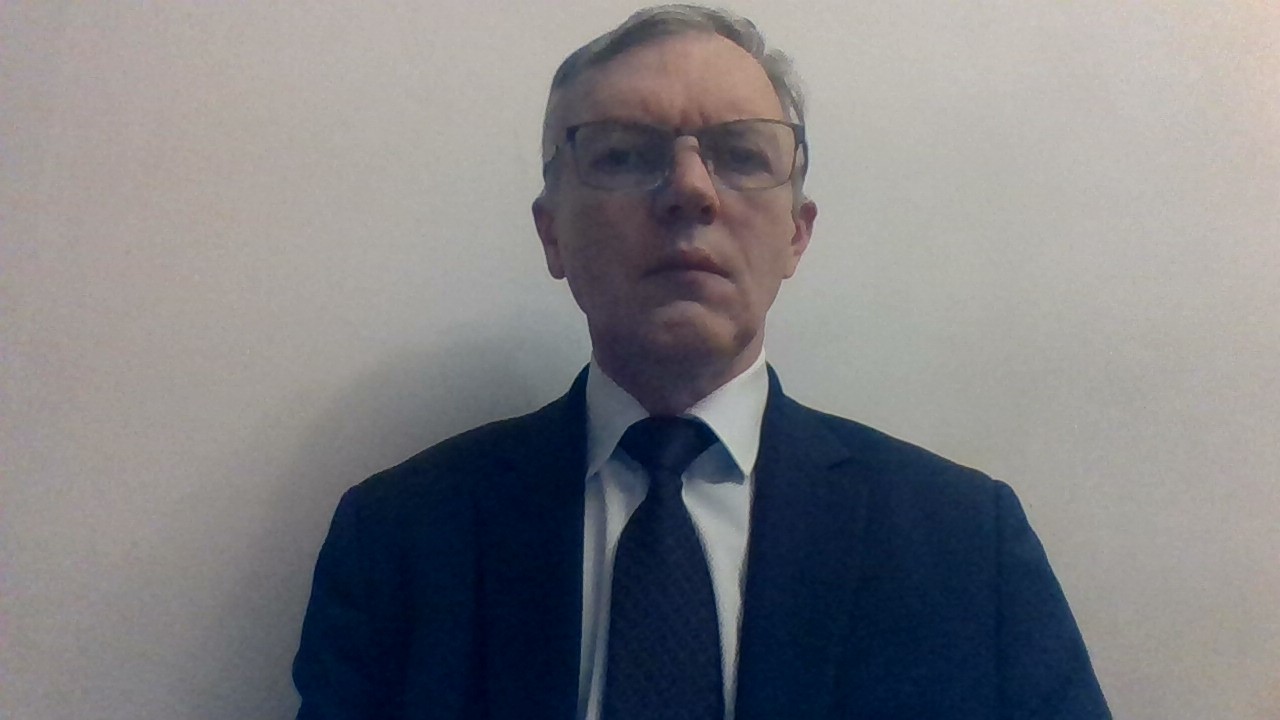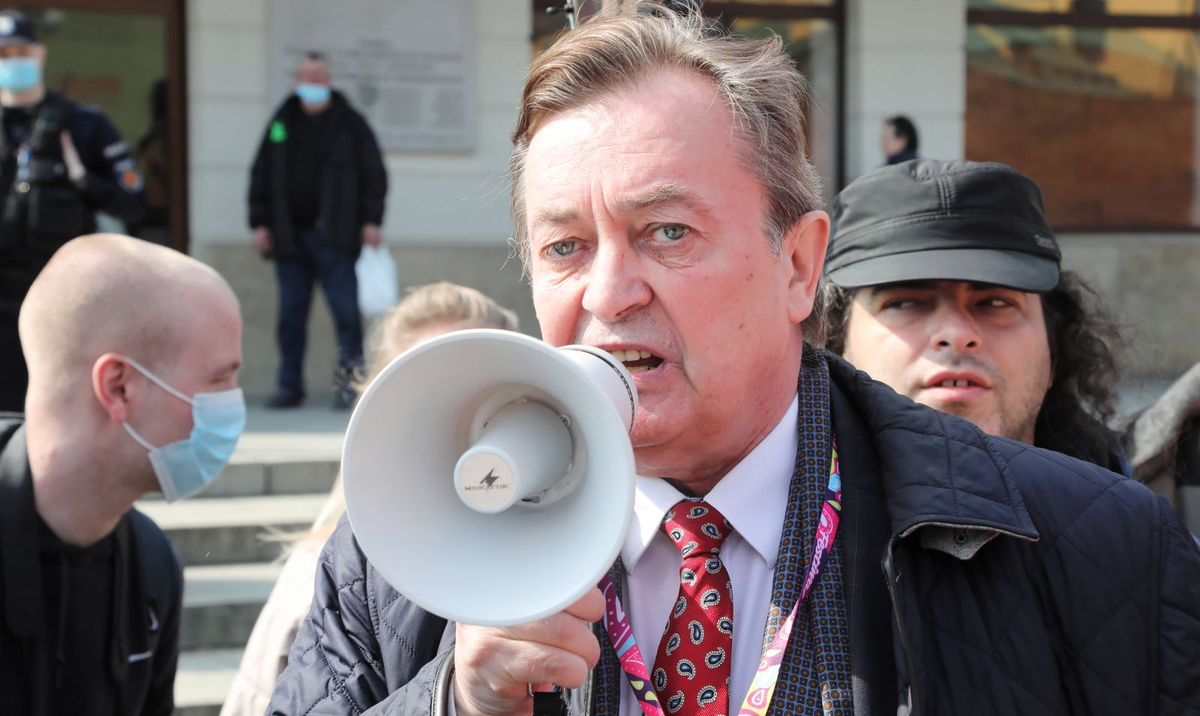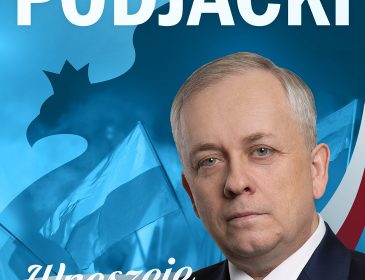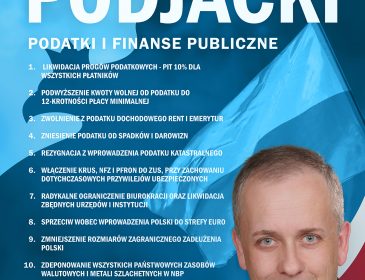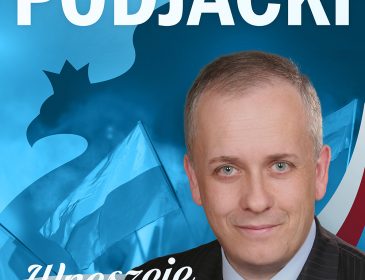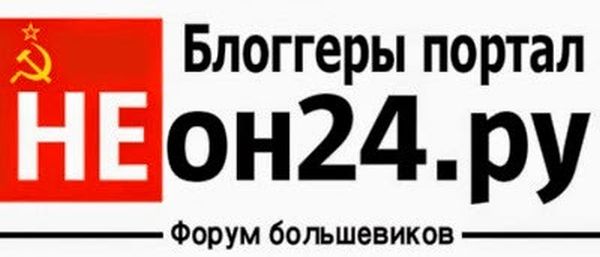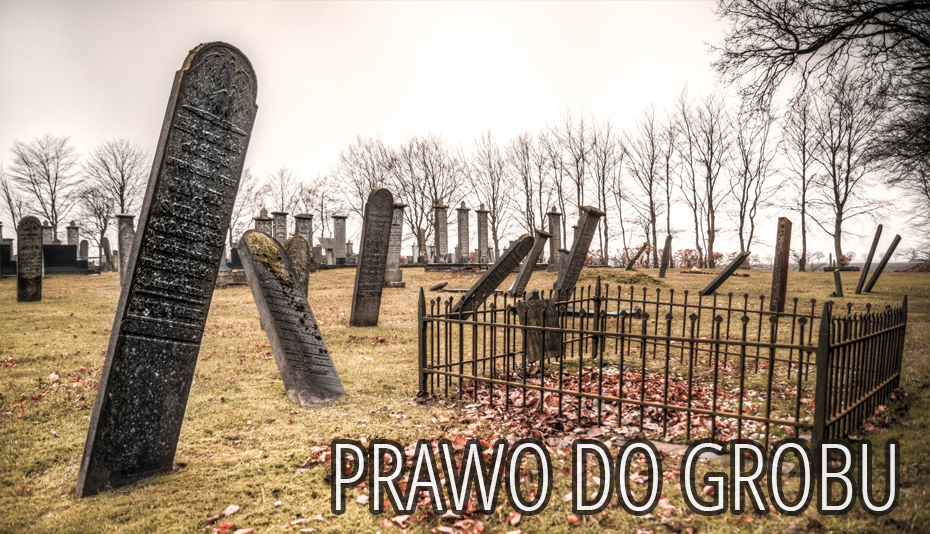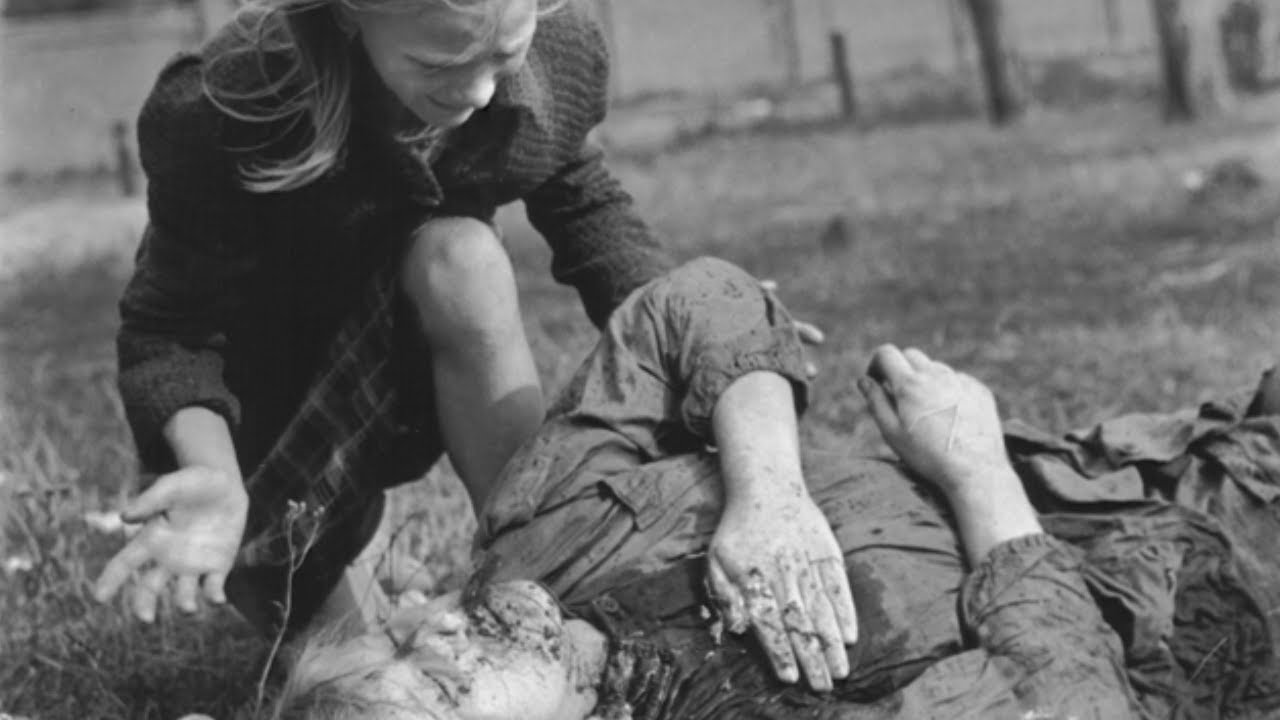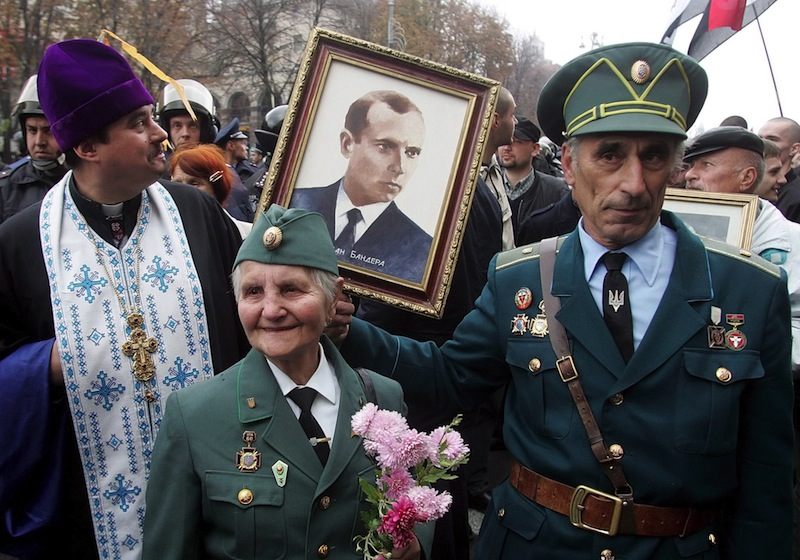-
Bohaterstwo, które podziwiał świat. „W..
POLSKA2 lata temu -
Neon24 – ruska V kolumna
POLSKA3 lata temu -
Nowe osoby w Zarządzie Amiblu
BIZNES3 lata temu -
Mechanizm warunkowości – krok ku Homo Eu..
POLSKA3 lata temu -
Wściekłe i wulgarne „Lemparcice” ..
POLSKA4 lata temu -
Rolnicze poparcie dla prezesa Elewarru – ..
NEWS4 lata temu
Śledczy czyli upośledzony

Były spec TVN od podsłuchów, Tomasz Sekielski, zapłakał nad zanikiem dziennikarstwa śledczego. Tylko czemu ma służyć dziennikarstwo śledcze skoro większość dużych afer kończy się niczym w prokuraturze i sądach ? Wystarczy popatrzeć na aferę PZU.
Tomasz Sekielski lansuje swój nowy program w partyjnej telewizji TVP1 i przy okazji wylewa łzy nad marnym stanem dziennikarstwa śledczego (cytat): “W tym momencie (dziennikarstwo śledcze) jest w absolutnym zaniku”. Skoro ukręca się łeb aferom hazardowym, taśmowym, gruntowym, amberowym i innym, to po co w ogóle mieć dziennikarstwo śledcze ? Od dawna media zeszły na bezpieczny poziom gminny: korupcja w przedszkolu, nepotyzm w powiecie, złodziejstwo na rynku i afera w parafii. Tak jest bezpiecznie i efektownie, coś się dzieje, ale nie za dużo.
Dochodzenie prawdy w dużych aferach polityczno-gospodarczych jest wcześniej czy później kneblowane, jeżeli nawet dziennikarz nie wyleci z roboty za prawdę i śledztwo zostanie wszczęte, to albo śledztwo jest w pewnym momencie umarzane albo sąd załatwia sprawę po swojemu.
Tak załatwiono właśnie aferę naszego narodowego ubezpieczyciela PZU, z którego poprzednie zarządy wypompowały setki milionów złotych. Gdańska prokuratura przeciąga śledztwo i nie jest w stanie (nie chce ?) zająć się porządnie tą sprawą:
monsieurb.nowyekran.pl/post/79284,pomagamy-prokuraturze
W tym samym czasie, była żona jednego z podejrzanych idzie do przodu z własną procedurą sądową, która może ujawnić to czego gdańska prokuratura nie widzi, czyli szczegóły aktywów finansowych wyssanych offshore (poniżej).
No ale jak wiemy od czasu afery Amber Gold, Gdańsk i Jersey to nie tylko dwa rożne światy, to dwie rożne galaktyki.
Trust – appeal against the decision of the Master on 7th February 2012.
|
Before : |
M. C. St. J. Birt, Esq., Bailiff, sitting alone. |
|
Between |
Sharlane Lumina Perczynski (nee La Rocque) |
Representor |
|
And |
Andrzej Bogdan Perczynski (also known as Andrew Northen) |
First Respondent |
|
|
Warren Trustees Limited |
Second Respondent |
|
|
Elysium Trustees Limited |
Third Respondent |
|
|
Julian Clive Gollop (Guardian ad litem of Celine Carole Therese Marie Northen |
Fourth Respondent |
|
|
Julian Clive Gollop (Guardian ad Litem of Ines Tamara Evelyne Perczynski |
Fifth Respondent |
IN THE MATTER OF THE TAMARA HETMANSKA SETTLEMENT AND TRUST AND THE TEMARA HETMANSKA FAMILY TRUST
Advocate A. D. Hoy for the Representor.
Advocate S. J. Young for the First Respondent.
Advocate M. P. Renouf for the Second Respondent (the Appellant).
Advocate D. S. Steenson for the Fourth and Fifth Respondents.
JUDGMENT
THE BAILIFF:
1. This is an appeal by the trustee, Warren Trustees Limited, against a decision of the Master dated 7th February, 2012, ordering general discovery within 56 days. Warren first appeals against that decision and contends that discovery should be limited to certain issues. Secondly, in a separate summons which I shall consider in a moment, it submits that it cannot complete the exercise within the period of 56 days ordered by the Master and therefore seeks an extension of time.
2. The background to this matter was set out fully in the Master’s reasons and I think I propose simply to quote certain paragraphs of his judgment for convenience as follows, starting at paragraph 5:-
“5. The general background to this action is somewhat acrimonious divorce proceedings between the Representor and the First Respondent which have taken place in various jurisdictions particularly France and Poland. Those proceedings have continued for a number of years and have still not been totally resolved. In this action, the Representor claims interests held by the Second and Third Respondents in a family trust known as the Tamara Hetmanska Family Trust. Essentially her claims are that she has proprietary interests under community of property rules applicable to the marriage and divorce and/or assets of hers were wrongly settled into the trust by the First Respondent.
6. The present proceedings were commenced in 2004. There has been, to say the least, a chequered procedural history. Matters have been made more complicated because of the fact of parallel matrimonial proceedings in France and Poland. This has led to numerous interlocutory applications and various amendments to pleadings. For the purposes of these reasons it is not necessary for me to set out in detail the long and complex interlocutory history of the action. It is important to note, however, that by Act dated 25th October, 2005, the Royal Court sanctioned the decision of the Second Respondent to adopt a neutral stance in the proceedings and made a protective costs order in favour of the Second Respondent.”
3. The Master then went on to describe in more detail some of the procedural history of these proceedings, I do not think it necessary to recount those. Suffice it to say that matters have repeatedly been put off in the hope that the parties could negotiate a settlement, but that has not so far occurred. In due course therefore the matter came back before the Master for his consideration on 7th February, 2012 and it was on that occasion that he made, amongst other orders, the order for discovery that I have described.
4. Before turning to the grounds of the appeal I should explain briefly the unusual position of Warren. It is now the trustee jointly with another company called H1 Limited, although that latter company has for some reason not been joined to the proceedings and I must confess that I should have thought that it ought now to be joined. However, it is Warren that has been the trustee at all relevant times; Mr Alan Evans is the principal director of Warren and he was the principal responsible for the administration of the Trust throughout the period. He has explained that until the Representor obtained a freezing injunction in 2000, the Trust was very active with a number of subsidiary companies and numerous inter-company loans and transactions. It appears that in 2007 there was a police search of the premises of Warren and since then Warren has in effect ceased business. It has sold its trust business to another trust company but it has apparently continued to act as trustee of this particular trust together more recently with H1 Limited. Warren apparently has no premises and no employees. The only person involved in it is Mr Evans and a co-director, although it would appear that that co-director is not actively involved. Mr Evans now spends most of his time in Switzerland on other matters. Until recently the Trust was completely illiquid and Warren had not received any fees for many years. However, as a result of a recent disposal there are now funds with which to pay the trustee’s fees and other expenses.
5. Mr Evans has explained that the files of Warren relating to the Trust are stored in various boxes which were originally properly indexed so that matters could be found easily. However he says that the police search left everything in a terrible mess and accordingly it will now take much longer to find everything and to review and list it. He has further explained that, now that there are funds available, it is intended to take on certain temporary staff and some temporary premises so as to undertake the discovery task which is said to be a very substantial one. Mr Evans emphasises that he is the only person who knows about the Trust and therefore the exercise can only be properly be undertaken with his personal involvement. He explains further that his father regrettably is seriously ill and he has to spend a considerable amount of time with him; he also has commitments in Switzerland. He can therefore only spend a certain amount of time managing the discovery process in Jersey, although he emphasises that he is anxious that Warren should comply fully with any order which the Court makes.
6. With that introduction I turn to the grounds of the appeal. In effect, they are straightforward. Advocate Renouf said that it will be wasteful and unnecessary to make an order for general discovery. He says that the litigation brought by the Representor falls naturally into two parts. The first relates to the transfer of assets into the Trust. Were these, as she contends, either assets which belong to her or assets which were held in community of property under French Law which she says is the applicable law. If the latter then she contends that she is entitled to one half of such assets. Advocate Renouf submits that discovery for this limited aspect, namely what was transferred and were they either the Representor’s or held in community property, would be reasonably confined and would certainly be a much simpler, less time consuming and cheaper process than the general discovery ordered by the Master. Advocate Renouf argues that only if the Representor succeeds on this first issue does the second issue arise, namely the tracing of her share of any assets of hers or held in community property transferred into the Trust, into the current trust assets. He submits therefore that it would be a waste of time and money to order general discovery at this stage when it may never become necessary if the Representor fails on the main part of her case. He points out that according to Mr Evans’ affidavit of 20th April prepared for this appeal, Mr Evans estimates that there are approximately 40,000 pages of documentation which will have to be reviewed for relevance in relation to these proceedings. Assuming two persons working full time together with his input, and input perhaps from Hanson Renouf, he estimates that it would take approximately four months to comply with the discovery order even on this limited basis. As to costs Mr Evans gives a very rough estimate of some £125,000 as being the cost of this limited discovery. Mr Evans goes on in his affidavit to say that, if the Master’s order is upheld and that there is therefore an order for general discovery, he thinks it will take approximately three times as long because of the more complex task of reviewing everything for relevance to tracing issues and presumably therefore he is saying it will cost approximately three times as much, although it is right to point out Mr Evans accepts that this can only be a very rough estimate at this stage. As to time, he says that the minimum time he could do it in would be twenty six weeks, that is some six months. In essence therefore the trustee appeals this order because it contends that it would be economically better for the Trust and less wasteful expenditure if discovery was divided in the way that it contends.
7. I have considered carefully Advocate Renouf’s submissions which were set out very helpfully in his skeleton and elaborated in oral argument this morning. However, I propose to dismiss the appeal. I would summarise my reasons briefly as follows:-
(i) The trustee has been directed by the Court to act as a neutral trustee leaving the wife and the husband and the other beneficiaries as appropriate to fight it out. This is really a classic case of a dispute as to whether the trustee is holding the trust assets for the named beneficiaries of the Trust for whom it believed it was holding the assets, or whether in truth some other person, in this case the Representor, has a proprietary claim to some of those assets so that the trustee is in fact holding some of those assets on trust for her.
(ii) It is therefore for the contesting parties to decide how to litigate this matter. None of them has applied for trial of a preliminary or separate issue. It seems to me therefore that the normal order for discovery which would be made in those circumstances is for general discovery because there is no limited issue which is before the Court.
(iii) The costs of the trustee in complying with the order for the discovery will borne by the trust fund. In his affidavit Mr Evans has explained that the costs of general discovery may be three times higher than the more limited discovery which the trustee seeks but none of the beneficiaries are supporting the trustee in this respect. The husband is neutral and indeed Advocate Young obtained leave not to attend the proceedings and the wife and the children approve of the order and oppose the appeal. It seems to me highly relevant that no-one is supporting the trustee on this aspect in circumstances where the trustee has been directed to act neutrally. If none of them would prefer limited discovery on the basis that it would save costs, why should the Court make an order for limited discovery on the application of a trustee acting neutrally?
(iv) It is clear that Mr Evans has little continuing connection with Jersey. There is indeed a question as to whether Warren is acting lawfully by continuing as trustee but that is not before me today. It seems to me that the interests of all parties are best served by ensuring that full discovery is made whilst Mr Evans is still able to commit time to it and whilst Warren is still the trustee. If I order limited discovery at this stage and then full discovery becomes necessary at a later stage it may be by then that Mr Evans is simply not available and discovery may well turn out to be longer and more expensive on that aspect than it would at present. This, in my judgment, would not be in the interests of the parties.
8. So putting all these matters together I conclude that the Master reached the right decision in relation to discovery and I consider therefore that there ought to be an order for general discovery; in other words documents which are or may be relevant to the issues disclosed on the pleadings. The test for that is well established and I do not need to repeat it. The trustee can of course obtain legal advice on the test it should apply when making discovery.
9. I will now hear separate argument on the trustee’s application for an extension of time for complying with the discovery order. (Court hears submissions)
10. I am going to order an extension of time of 4 months on the basis that I want to do my best to ensure that discovery is indeed made within that time. So I wish to make it clear that there will have to be good reason for not complying with it given that funds are available. Given that the other parties have pushed for this wide discovery and for it to be done quickly, they can hardly object if resources are brought in to meet that. I am not saying that is a carte blanche for a moment but clearly it is not something which is dependent on Mr Evans himself picking up and looking at every document; so I am going to order 4 months from today.
11. As to costs, dealing firstly with the stay, it seems to me that that should not have been opposed. Given that there was an appeal on foot, to oppose the stay was doomed to failure and it should not have been done. Therefore, so far as the hearing for the stay is concerned, I am going to order that the Representor pays the costs of the trustee. They are really the only two opposing parties so I think I will confine myself to that.
12. So far as the appeal itself is concerned I of course bear in mind the principle that a trustee should normally be able to recover its costs out of the trust fund unless it has acted unreasonably or has in substance acted for its own benefit. The difficulty is that in this case the trustee had been directed to act neutrally. Now of course that does not mean that the trustee should do nothing and it would have been perfectly proper for the trustee to argue before the Master as to the areas of discovery and the timing for discovery but once the Master had reached his decision, then it seems to me that a trustee is stepping outside the role of neutrality if it then seeks to appeal in a matter of this nature. So I consider that the trustee has opened itself up to an order for costs. It has appealed unsuccessfully so I think the trustee must pay the costs of the Representor in this matter. The other parties have really played very little part and I think they can have their costs out of the trust fund in the usual way. The costs will be on the standard basis. I also order that the trustee is entitled to the costs of the latest affidavit (which gave the details of how long the discovery would take). I think that was reasonable so I am going to order that it can be reimbursed for that; but otherwise it has to bear its own costs in relation to this appeal and it has to pay the costs of the Representor, although again I am going to direct that those costs are limited to argument about discovery in an adversarial matter. Mr Hoy went into great detail in his skeleton about discovery for the beneficiaries, I consider that to have been completely irrelevant and therefore the trustee does not have to pay the costs in relation to that.
13. The Guardian gets his costs out of the trust fund on the usual basis.
Z Panamy przez PRL do III RP, czyli o wplywie Wizjonerskiej Strategii Inwestowania (WSI) na Polske -- czytaj cala prawde calodobowo -- na www.wsi24.pl oraz Facebook / Goodbye ITI -- i mysl samodzielnie, bez TVN24 !!

